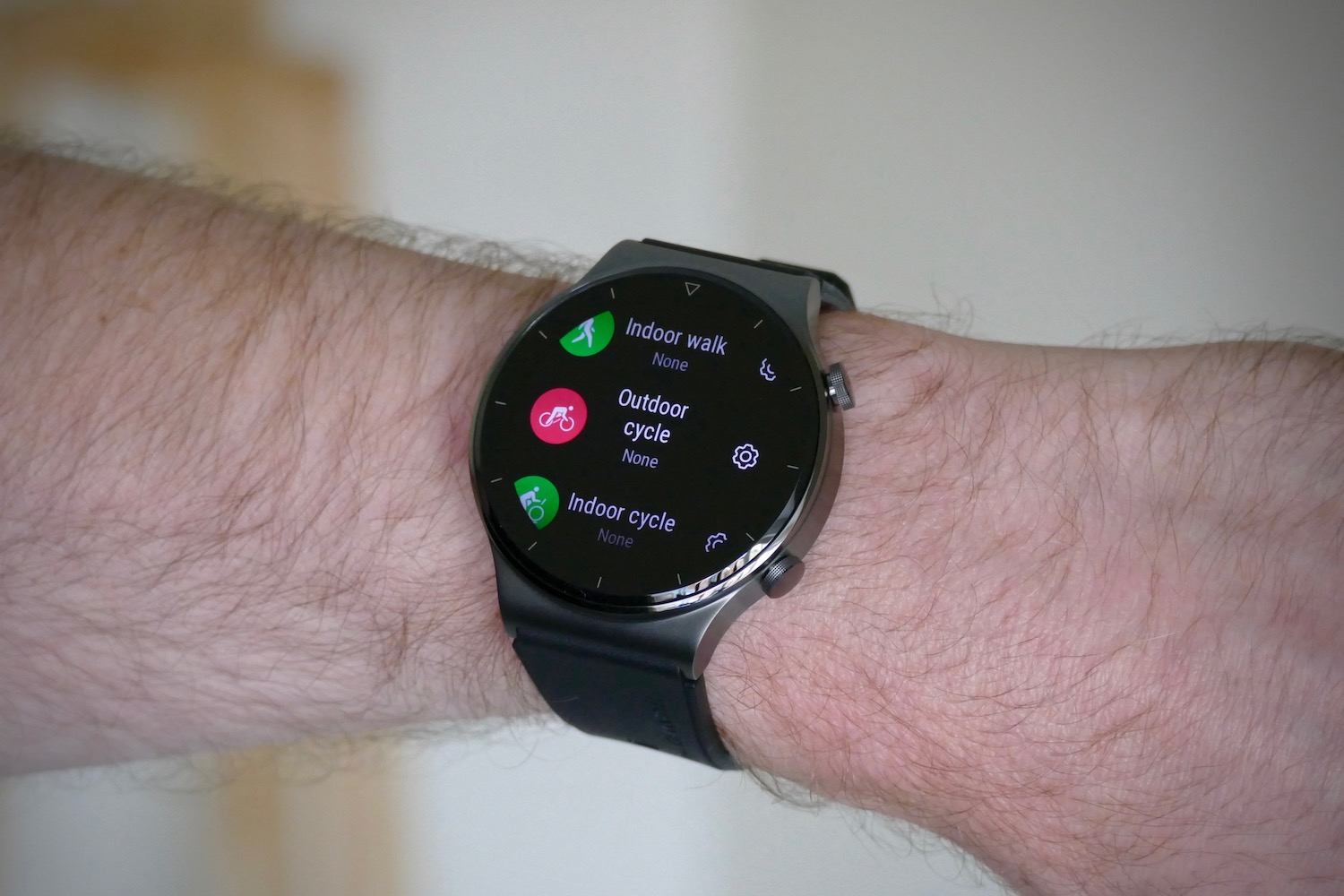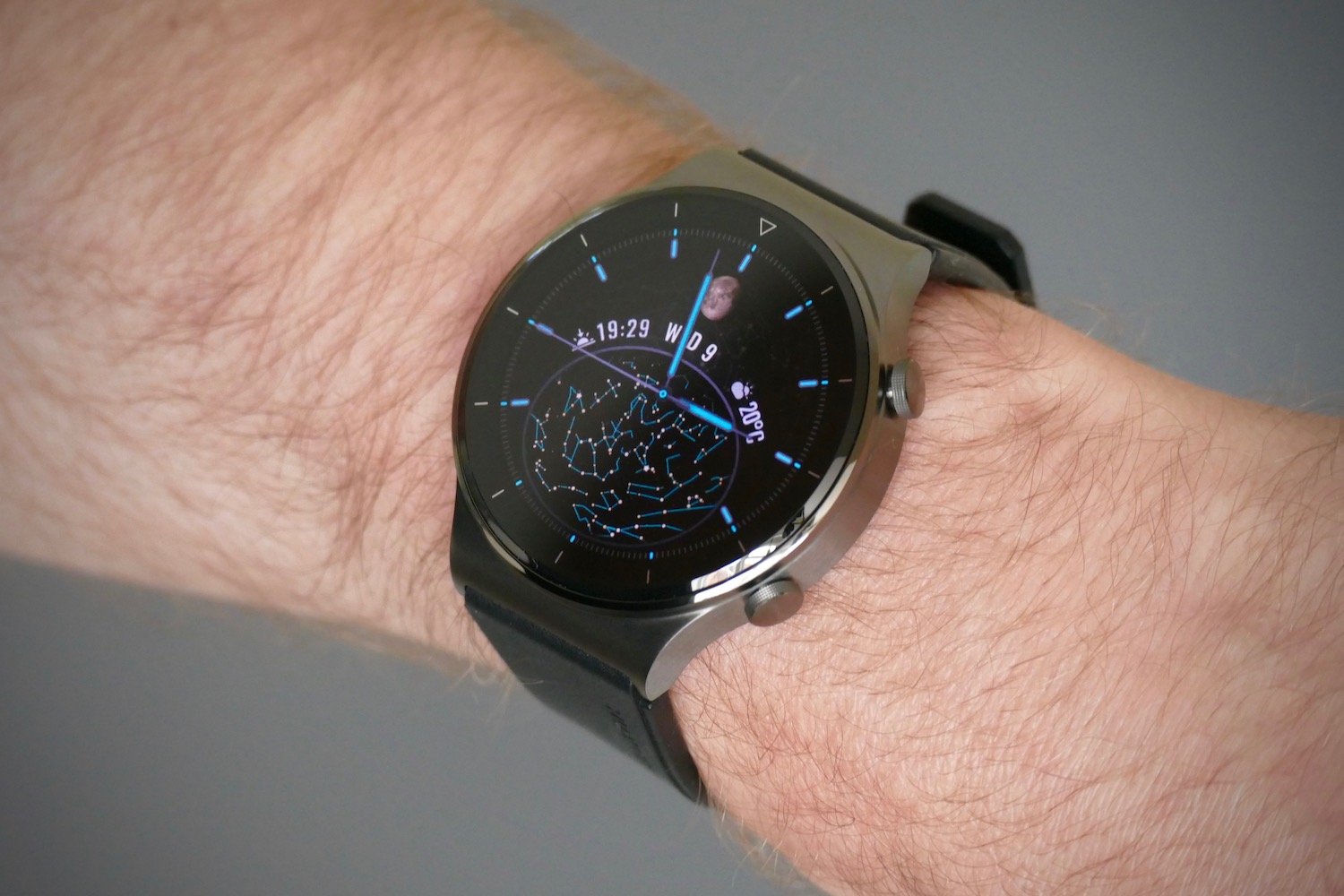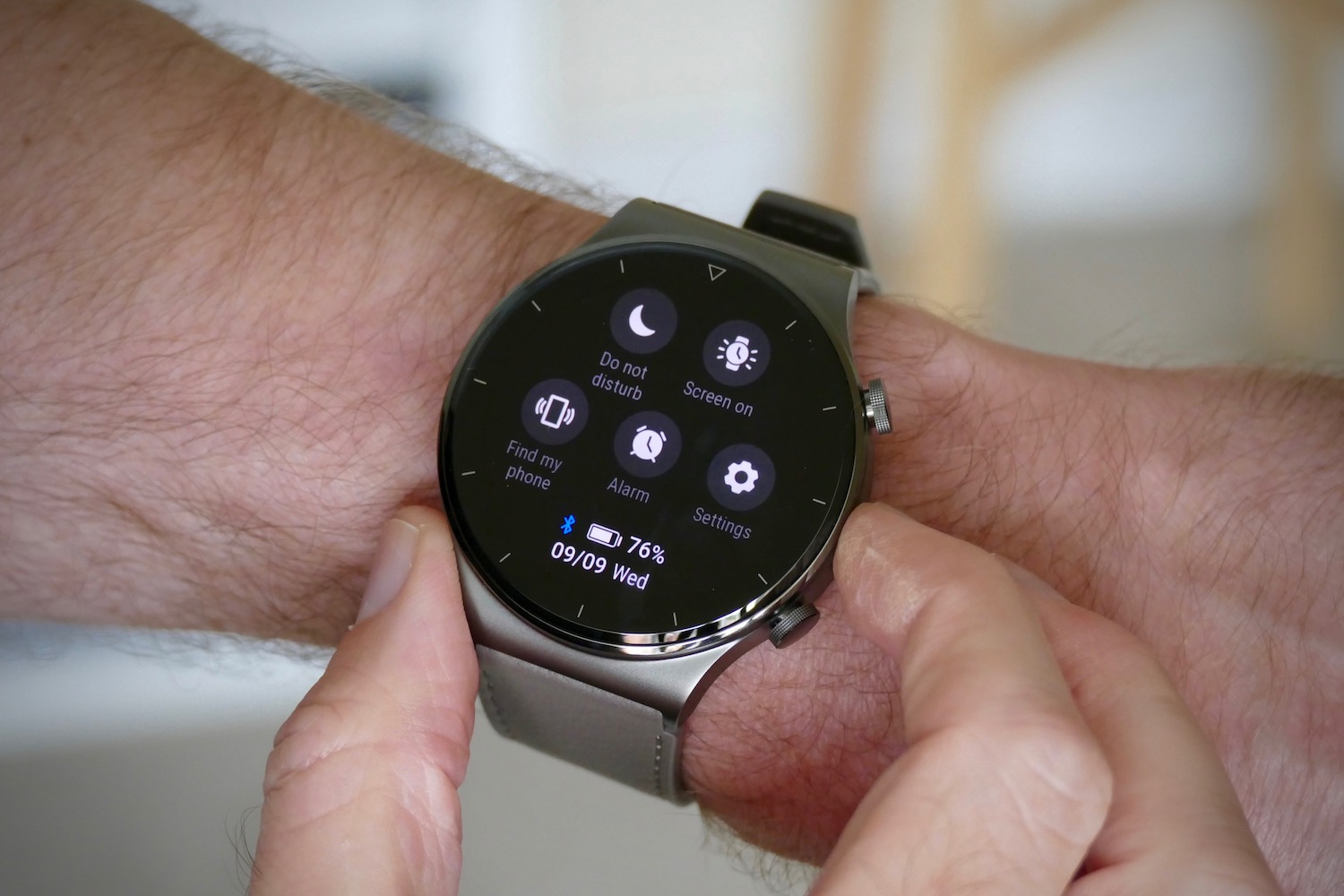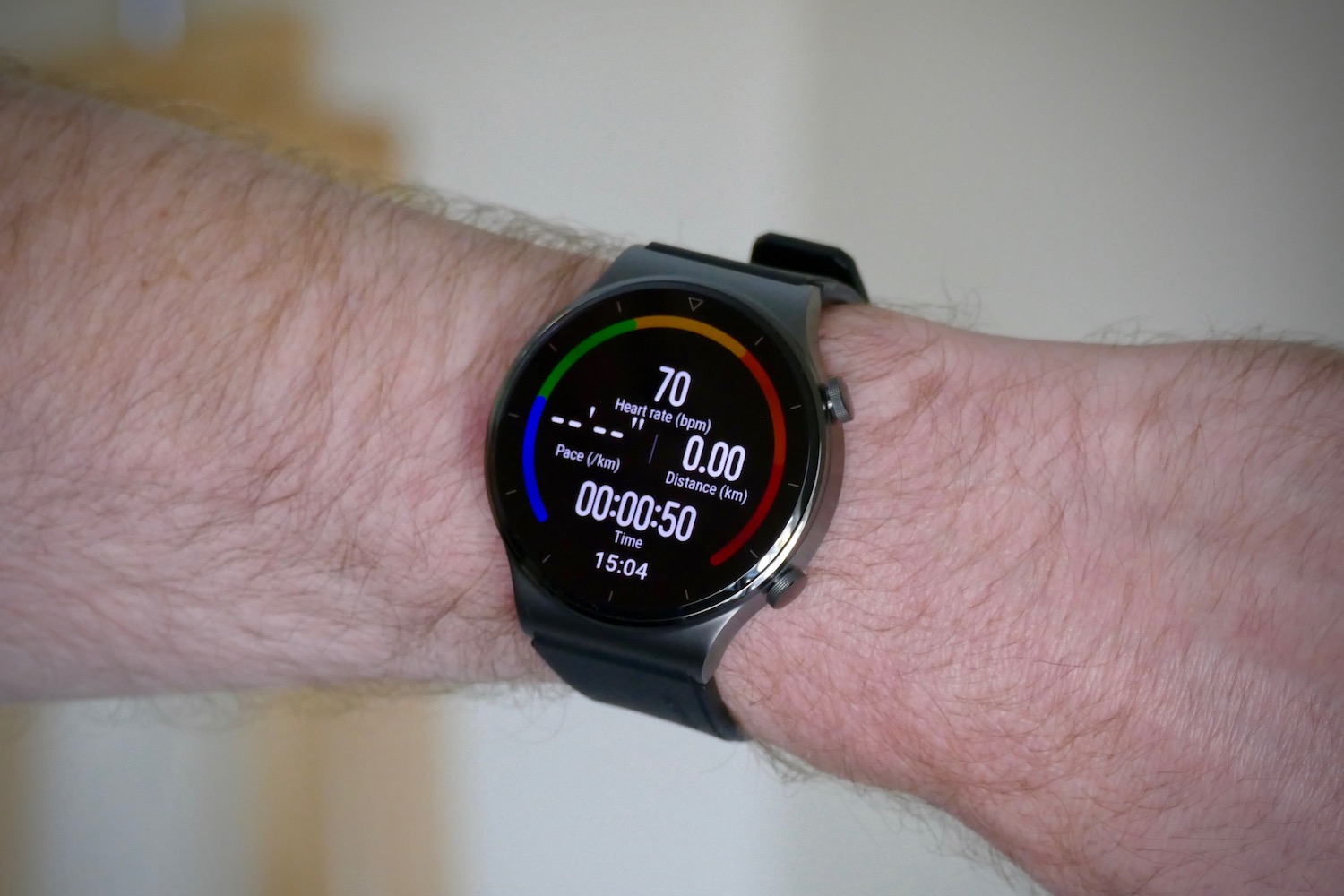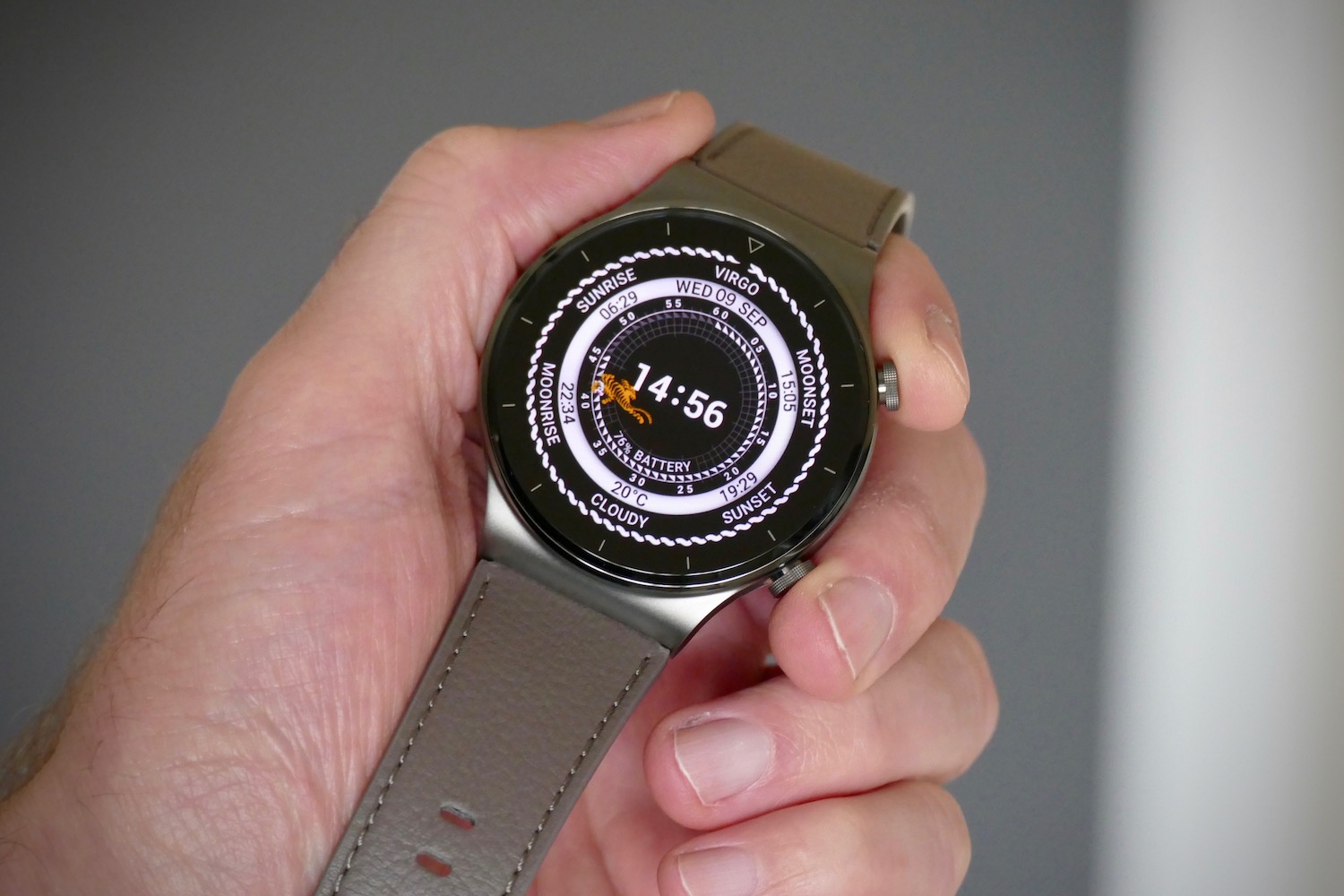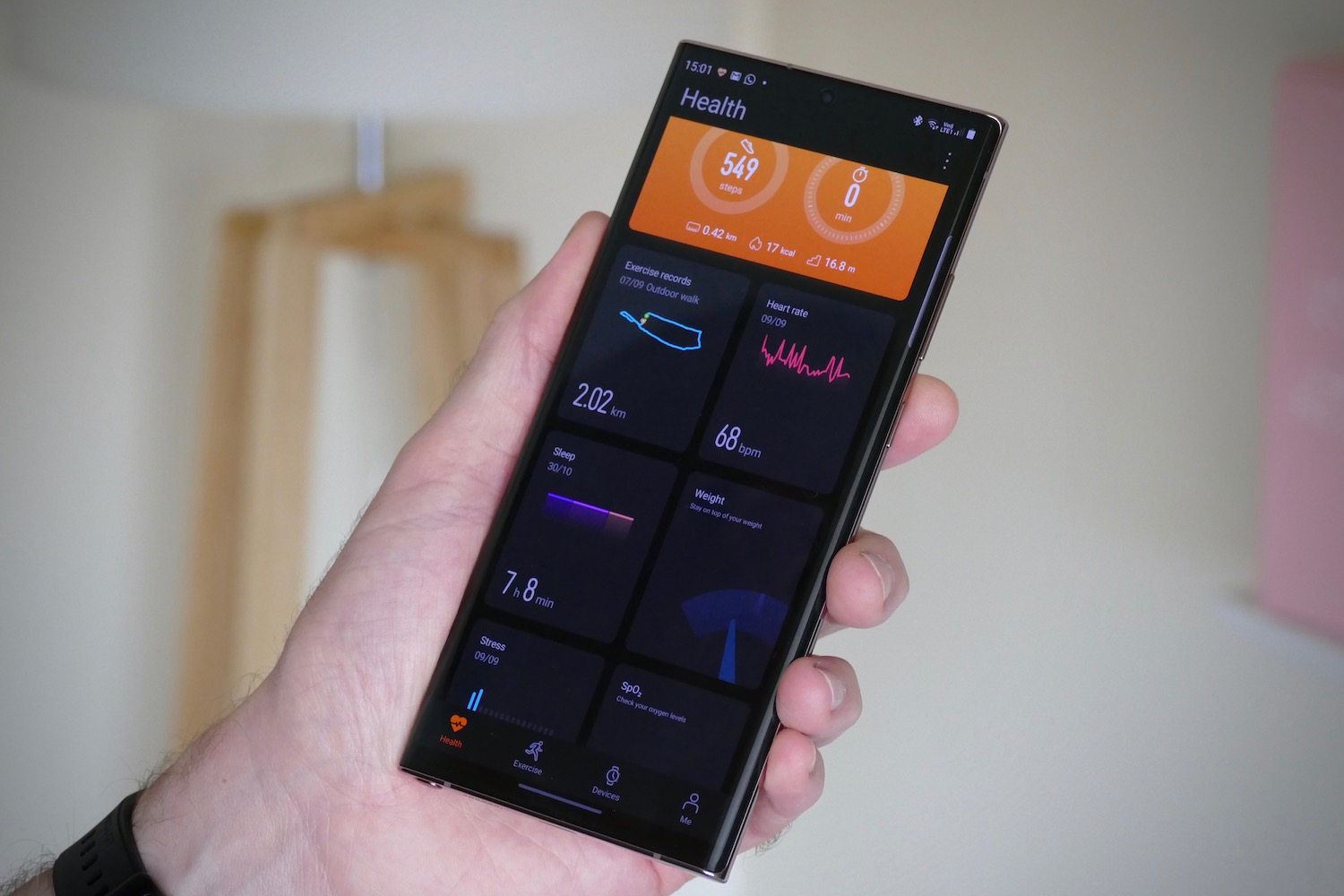Huawei’s wearables are more important to its business than ever as it continues to build an ecosystem of connected, non-smartphone products in the face of continued restrictions from the U.S. government. Its latest is the Watch GT2 Pro, a follow-up of sorts to the Watch GT2 launched this time last year.
Why do I say “of sorts?” There’s a reason it’s not called the Watch GT3, and that’s because it’s technically very similar to GT2. Also, the Pro moniker describes an upgrade in materials rather than technology. This means it still concentrates on health tracking over deep smartwatch functionality, and uses its long battery life to appeal on the tech front. Here’s what it’s like to wear one for a few days.
Design
The Huawei Watch GT2 Pro uses the right materials. The body is made from lightweight yet strong titanium, the screen is covered by sapphire crystal, and the case back is ceramic. In the world of watches these are often taken as a mark of quality, and here they keep the Watch GT2 Pro from looking cheap or like a toy.

Sapphire crystal has a different, more attractive sheen to it than glass, and on the Watch GT2 Pro, it disguises the OLED screen underneath very well. But it’s the ceramic back that’s the real winner here. The cool-to-the-touch finish makes it much more comfortable to wear than the plastic-backed Watch GT2, and even though it’s only 5 grams lighter than the older model, it’s more pleasant to wear for longer periods.
It has gained some bulk though, and is several millimeters thicker than before. The 46mm case looks bigger due to the shrouded, all-in-one lug design and the largely flat sapphire crystal. The wonderful curve on the Watch GT2’s glass is missed here, and the simple markings on the bezel don’t have the same visual impact as the GT2’s chronograph markings.
There are two buttons on the side of the case, and these have a subtle outer texture, but a rather cheap motion and an off-putting

Huawei’s decision to use premium materials for the Watch GT2 Pro is wise. It’s going to be more durable and look better for longer. The design itself isn’t as pretty as the Watch GT2 or Samsung’s Galaxy Watch 3, though, and I don’t find my gaze is drawn to it often, mostly because there isn’t much flair. The covered lugs give it a hewn-from-a-single-block look that lacks character, and that’s important on a something we wear all the time.
It’s still good-looking, and doesn’t look out of place with anything you wear. Initially, I didn’t warm to the Watch GT2 Pro like I really should with a watch, but I felt differently when I put the black strap on. This gave the whole thing a far more stealthy and stylish ambiance, which I feel suits it more than the traditional leather strap.
Performance and software
The Watch GT2 Pro uses the same Kirin A1 processor as the Watch GT2, and it’s a moderate performer. The low-energy chip is there to extend the Watch GT2 Pro’s battery life rather than return blistering speed, so the Huawei-developed software is often slow when you wake the watch up. Once the watch is going, this slight muddiness disappears.
I’ve used the Watch GT2 Pro connected to a Samsung Galaxy Note 20 Ultra. It requires the Huawei Health app, which is also available for iOS, to be installed. Connection is simple and worked without a hitch, plus it was reliable, with reconnections quickly taking place without prompting. The app is excellent for processing and displaying fitness data, right down to showing routes obtained by GPS on the watch during a walk or run.

On that subject, the Watch GT2 Pro has a speaker, and voice guidance is automatically activated when you start a workout. “Start workout,” it obnoxiously shouts, but it gets much worse. When you reach a milestone, the exceptionally irritating voice suddenly gives a loud overview of your time elapsed, distance, average pace, and heart rate. The embarrassment factor when struggling to find the mute button when it does this cannot be overstated.
This awful feature aside, the workout tracking on the Watch GT2 Pro is good. There are 100 different workout modes, including new skiing and golf driving range modse, plus it has a Route Back feature to help you return to a starting point even when the GPS signal is lost. It also shows sunrise and sunset information, weather information, and moon phase and tide times. I’d like a little more health data to be shown on the watch, instead of being forced into the app.
Workout modes are accessed using the lower button on the case, but the in-workout controls are somewhat confusing. While it’s natural to long press or swipe on the screen to access controls to stop the workout, here you have to instead press the upper button on the case, which elsewhere in the system is a Back or Menu button. Not very intuitive.
Notifications are presented in one long list accessed with a swipe up the screen, but none can be interacted with. Tapping a card just shows the same information on a slightly larger canvas. Notifications are accompanied by a vibration, but it is not very strong even on its maximum setting.
The preinstalled watch faces vary from normal to bizarre, with the Black Tie version coming out on top, and the very odd Caged Tiger one reserved for Carole Baskin wannabes. Inside the Huawei Health app, there are more faces to download, and the selection includes many seen on the Watch GT2. The GT2 Pro’s always-on screen is not activated as standard, but it’s helpful and considerably better than looking at a black screen. I do wish there was a tap-to-wake feature, as the raise-to-wake feature isn’t very responsive, and I often had to press a button to wake the screen.
Battery and other features
Huawei says the Watch GT2 Pro’s battery will last for about 14 days before needing a recharge, or about 30 hours with the GPS constantly working. I’ve been wearing my watch for three days, and the battery has depleted to 70% with moderate use and with the always-on screen active, suggesting 10 days will be possible. The wireless charging plinth has a rapid charge feature that boosts the battery for 10 hours use in just five minutes.

The heart rate sensor has been improved with new LEDs and better materials so it returns more accurate readings. It operates 24 hours a day for tracking during workouts and sleep. It has Huawei’s TruSleep system onboard, which has proven effective in the past, but I have not tested it on the Watch GT2 Pro yet. There is also an automatic stress test that operates in the background, as well as SpO2 levels during workouts, making the Watch GT2 Pro a comprehensive health wearable.

It can be used on its own when exercising due to the GPS and Bluetooth connection for
Conclusion
The Watch GT2 Pro is a strange one. On the one hand, it does everything you need a health-focused smartwatch to do, with the added advantage of decent battery life, and is made from some excellent materials to make it look and feel great on your wrist. On the other hand, it’s really no different from the Watch GT2, aside from those materials and a few more workout plans, and that makes it hard to get that excited about. It’s also not a full-fledged smartwatch, and the connected features are basic, meaning it faces some tough competition.
Huawei has two versions of the Watch GT2 Pro, but the differences between them are unclear at the moment. The Sport costs 329 euros. or about $390, and the Classic 349 euros, or about $415. This is a significant jump up from the GT2, which came in at 220 British pounds, or about $285 U.S.. This puts it into Apple Watch and Samsung Galaxy Watch 3 territory, and it struggles to compete in that company.
That said, the Watch GT2 Pro does occupy an interesting space in the world of smartwatches. It’s not a hybrid like the Withings ScanWatch, and its not really a full smartwatch like the Apple Watch — it’s in-between, just like G-Shock’s connected watches are in-between a traditional watch and a hybrid. One watch never suits everybody, so choice in smartwatches is not just sensible, but very welcome.
